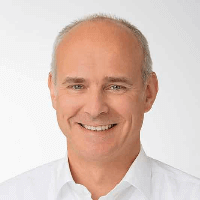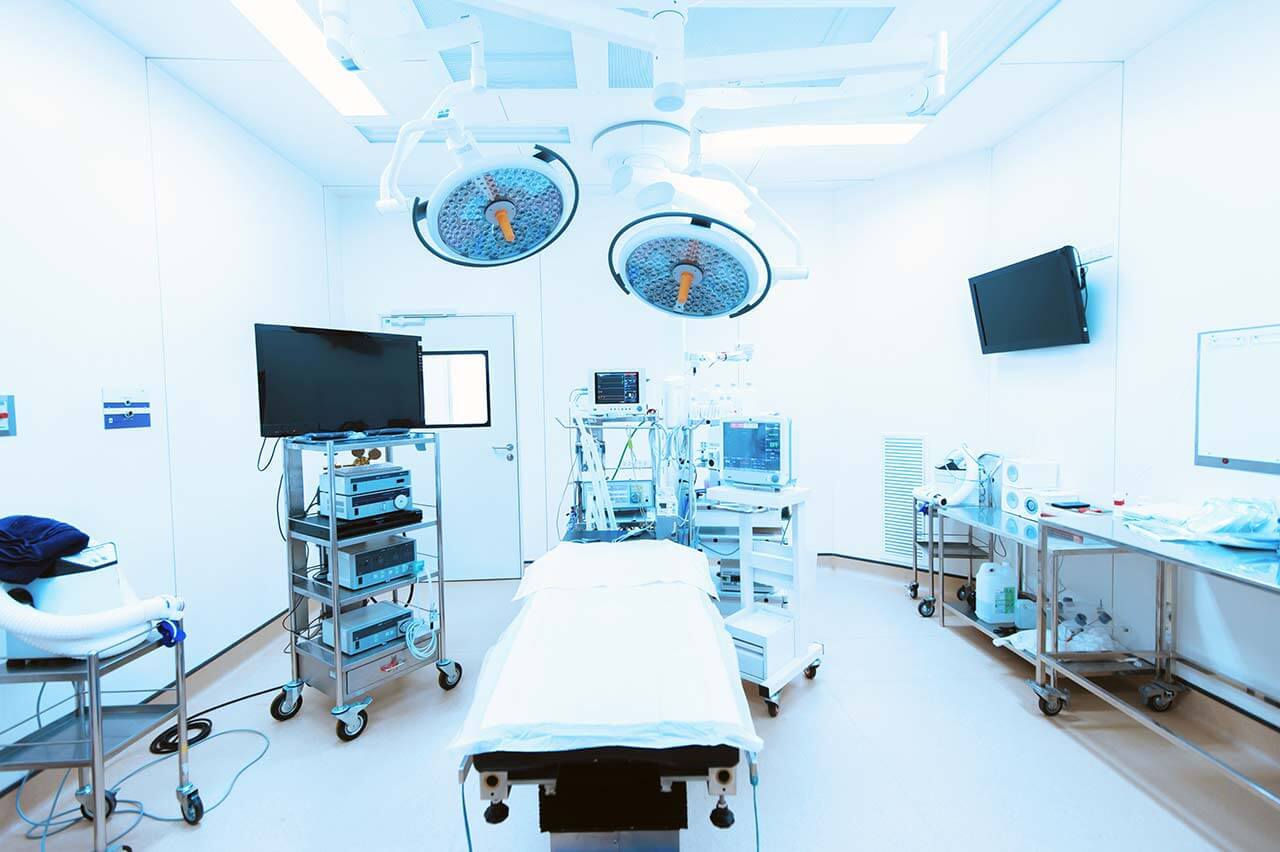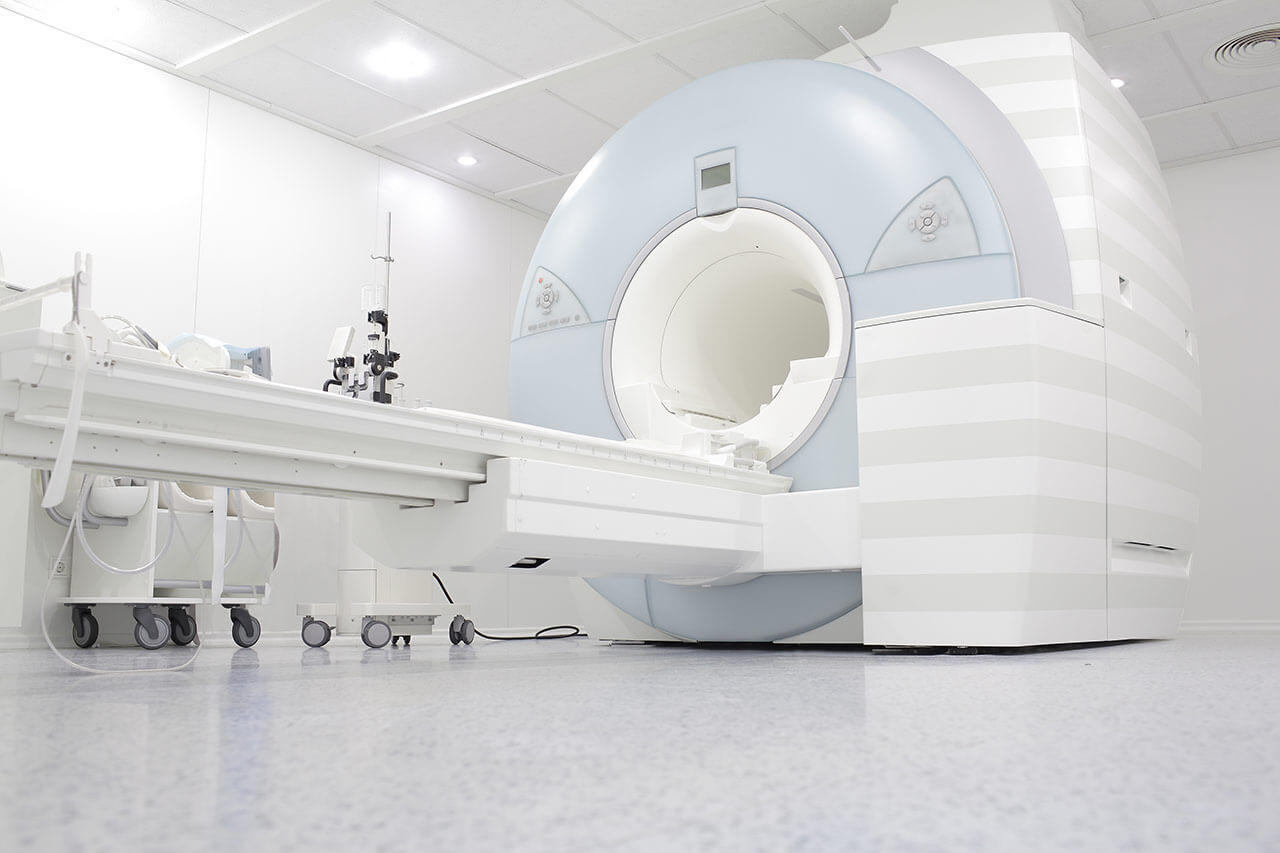
The program includes:
- Initial presentation in the clinic
- clinical history taking
- review of medical records
- physical examination
- general neurological examination
- neuropsychological tests:
- electroneuromyography (ENMG)
- laboratory tests:
- complete blood count
- inflammatory indicators (CRP, ESR)
- indicators of blood coagulation
- X-ray of spine
- CT scan of spinal cord (on indication 650 €)
- MRI scan of spinal cord (on indication 1200 €)
- nursing services
- consultation of all leading experts
- development of individual treatment plan
- written statement
Required documents
- Medical records
- X-ray examination, MRI/CT scan (if available)
Service
You may also book:
 BookingHealth Price from:
BookingHealth Price from:
About the department
According to the Focus magazine, the Department of Adult and Pediatric Spinal Surgery at the ATOS Clinic Heidelberg ranks among the best medical facilities in Germany in its area of specialization. The department provides the full range of conservative and surgical treatments for spinal diseases. The department admits patients of all ages, including young children. The medical facility is deservedly proud of its successful experience in the treatment of cervical, thoracic, and lumbar disc herniations. The department's specialists also regularly treat patients with spinal stenosis, spondylolisthesis, spinal fractures, facet joint syndrome, scoliosis, and other pathologies. The therapeutic offer includes all the possibilities of modern medicine in spinal surgery, ranging from complex conservative treatment with the use of medications, physiotherapy, and exercise therapy to spinal blocks and surgical procedures of any complexity. Spinal surgery is performed using microsurgical, endoscopic, and minimally invasive techniques. The effectiveness of these surgical procedures is comparable to the results of open operations, but they also provide a high level of safety and promote rapid recovery in the postoperative period. The department has modern computer systems for planning spinal surgeries, which also contributes to the best outcomes of surgical treatment.
The Head Physician of the department is Dr. med. Bernd Wiedenhöfer. He has been ranked among the best spinal surgeons in Germany for several years in a row by the renowned Focus magazine. Dr. Wiedenhöfer has more than 25 years of successful clinical practice. He brilliantly performs spinal surgeries on adults and children and uses sparing surgical techniques. He is a member of the German Spine Society (DWG), the German Society for Orthopaedics and Trauma Surgery (DGOU), and other professional societies where there is a continuous exchange of experience between spinal surgeons in Germany and doctors from abroad.
The key area of the department's clinical practice is the treatment of herniated discs in all parts of the spine. Lumbar disc herniations are the most common. Due to this pathology, a part of the intervertebral disc is displaced, which causes pain in the lumbar region with irradiation to the lower extremities and limited mobility. At the stage of diagnosis for an intervertebral disc herniation, the department's specialists study the patient's medical history and perform X-ray scanning and magnetic resonance imaging. In some cases, it may also be necessary to perform a nerve conduction velocity test. Once the diagnosis is confirmed, an individualized treatment regimen is selected for the patient. Lumbar disc herniations respond well to conservative therapy. In most cases, a personalized conservative treatment regimen is developed for the patient, which may include drug therapy, therapeutic exercises, physiotherapy, manual therapy, cryotherapy, heat therapy, and laser therapy. If necessary, the department's physicians also perform image-guided spinal blocks, in which a special thin needle is used to inject an anesthetic directly into the pathological focus in the spine under CT guidance. The procedure provides long-term pain relief and can be repeated. The last-line treatment for lumbar disc herniation is surgery. The surgical procedure is performed using minimally invasive techniques through a 2-3 cm incision. Immediately after the surgery, patients are back on their feet and the pain disappears completely.
The department has also gained impressive experience in treating spinal stenosis, a narrowing of the physiological lumens of the vertebrae that causes compression of the spinal cord and spinal nerves. Stenosis mostly develops in the lumbar or cervical spine. Lumbar spinal stenosis causes severe back pain, there is a decrease in sensitivity of the lower extremities, and it is difficult for a person to walk. In cases of cervical spinal stenosis, in addition to the above symptoms, fine motor skills are impaired. The most informative diagnostic methods for suspected spinal stenosis are X-ray scans and MRI scans. Conservative treatment can only be helpful in the early stages. The department's doctors prescribe physiotherapy, heat therapy, manual lymphatic drainage, and other treatments. In the advanced stages of spinal stenosis, the only effective treatment is surgery. The department's spinal surgeons perform minimally invasive interventions for stenosis, so postoperative recovery is quick and the risks of complications are virtually eliminated. If there are indications for surgery, the department's specialists recommend not delaying it because otherwise there is a high risk of developing an irreversible neurological deficit.
The department has a reputation as one of the best medical facilities in Germany for the treatment of scoliosis in adults and children. Scoliosis is a lateral curvature of the spine. In children, scoliosis is a purely aesthetic problem because young patients with this diagnosis mostly do not suffer from back pain or other symptoms. In adults, this spinal deformity causes pain and may lead to impaired function of the lungs, heart, stomach, intestines, and kidneys. Treatment is prescribed after a comprehensive diagnosis. The type of scoliosis, its stage, and the patient's age are taken into account when planning treatment. In the case of minor spinal curvatures, the doctors of the department use only conservative measures, such as individually developed physiotherapeutic treatment, correction with a special corset, and drug therapy for pain relief. 3-4 grade scoliosis requires surgery. Otherwise, the deformation can provoke bone marrow damage, which threatens the development of a neurological deficit. In addition, compression may potentially cause lung and heart dysfunction. During the operation, the department's spinal surgeons implant special screw systems to fix the vertebrae in the desired position, thus eliminating the curvature of the spine. The department performs surgical procedures for scoliosis using sparing minimally invasive techniques under the guidance of intraoperative neuromonitoring systems.
The department's range of medical services includes the following:
- Conservative and surgical treatment of cervical, thoracic, and lumbar disc herniations
- Conservative and surgical treatment of spinal stenosis
- Conservative and surgical treatment of scoliosis in adults and children
- Conservative and surgical treatment of kyphosis in adults and children
- Conservative and surgical treatment of spondylolisthesis
- Conservative and surgical treatment of spinal fractures
- Conservative and surgical treatment of facet joint syndrome
- Conservative and surgical treatment of other spinal diseases
Curriculum vitae
Higher Education
- 1990 - 1996 Medical studies, University of Bonn.
- 1993 - 1994 Medical studies, University of Montpellier, France.
Professional Career
- Since 2018 Head Physician, Department of Adult and Pediatric Spinal Surgery, ATOS Clinic Heidelberg.
- 2015 - 2017 Head Physician, Department of Spinal Surgery, Schoen Clinic Lorsch.
- 2009 - 2015 Representative, Center for Spinal Surgery, University Hospital Heidelberg.
- 2008 - 2015 Head, Center for Spinal Surgery, Department of Orthopedics and Trauma Surgery, University Hospital Heidelberg.
- 2007 - 2008 Managing Senior Physician, Department of Orthopedics and Trauma Surgery, University Hospital Heidelberg.
- 2005 - 2007 Senior Physician, Department of Orthopedics and Trauma Surgery, University Hospital Heidelberg.
- 2004 - 2005 Physician, Section for Cerebral Palsy, Department of Orthopedics and Trauma Surgery, University Hospital Heidelberg.
- 2002 - 2004 Assistant Physician and Research Fellow, Department of Orthopedics and Orthopedic Surgery, University of Erlangen-Nuremberg.
- 1998 - 2002 Assistant Physician, Department of Orthopedics, St. Joseph's Hospital in Bonn.
- 1996 - 1998 Internship, Department of General Surgery and Trauma Surgery, Evangelical Hospital in Bonn; Department of Orthopedics, St. Joseph's Hospital in Bonn.
Qualifications
- Board certification in Orthopedics and Trauma Surgery.
- Board certification in Physical Therapy and Rehabilitation Medicine.
- Board certification in Pediatric Orthopedics.
Memberships in Professional Societies
- German Spine Society (DWG).
- AO Spine.
- Association of Southern German Orthopedists and Trauma Surgeons (VSOU).
- German Society for Orthopaedics and Trauma Surgery (DGOU).
- German Society for Sports Medicine and Prevention (DGSP).
Photo of the doctor: (c) ATOS Klinik Heidelberg
About hospital
The ATOS Clinic Heidelberg is a reputable medical complex with high standards of patient care. The clinic was founded in 1991. Since then, it has taken a leading position in the European medical arena in the treatment of diseases of the musculoskeletal system and many other pathologies. The clinic has a highly professional team of doctors, many of whom are world-renowned professors. Specialists work with state-of-the-art equipment. They use classical and innovative treatment methods with high efficiency. Personalized medical care is a priority in the clinic: doctors carefully study each clinical case and develop individual diagnosis and treatment regimens, taking into account each patient's needs and wishes. Patients not only from Germany but also from other countries of the world regularly seek medical help from the clinic, which indicates the outstanding quality of medical services and the high level of trust patients have in the specialists of the ATOS Clinic Heidelberg.
In addition to providing top-notch medical care, the clinic is distinguished by its modern design. When a patient crosses the threshold of the clinic, he or she has the impression that he or she is not in a medical facility but in a luxury hotel. This idea is part of the clinic's working concept because the patient's comfort and psychological state play an important role in achieving successful treatment outcomes. The clinic offers cozy rest areas where patients can distract themselves from the therapeutic process and socialize. It goes without saying that the equipment in the diagnostic, treatment, and operating rooms is of a very high standard, which enables effective and safe treatment.
Patient care is important throughout the therapeutic process. The nursing staff treats each patient's life situation with respect and compassion and surrounds him or her with care. The doctors are focused on the best results, are always open to communication with the patient, and are happy to answer any questions.
More than 96% of patients rate their treatment experience and the quality of medical care at the ATOS Clinic Heidelberg positively.
It should be noted that the clinic is recognized as one of the best in the country in the field of foot surgery, hand surgery, hip, knee, and shoulder surgery, as well as in the field of spine surgery and aesthetic plastic surgery, according to the rating of Focus magazine.
Photo: (с) depositphotos
Accommodation in hospital
Patients rooms
The patients of the ATOS Clinic Heidelberg stay in single and double rooms. The clinic also offers accommodation in enhanced-comfort patient rooms. The patient rooms are made in light colors and modern design to create a comfortable and cozy atmosphere during the patient's stay in the hospital. The standard rooms are equipped with an automatically adjustable bed, a bedside table, a TV, a telephone, and air conditioning. The rooms have Wi-Fi access. Enhanced-comfort patient rooms are additionally equipped with upholstered furniture, a safe, and a mini-bar.
Meals and Menus
The clinic offers delicious and varied meals three times a day: breakfast is served as a buffet, lunch offers a choice of three set menus, and dinner also offers a choice of several set menus. The menu is mainly European cuisine. If, for some reason, you cannot eat all the foods on the menu, you will be offered an individual menu. Please inform the medical staff about your dietary preferences prior to the treatment.
The clinic also has a cozy cafe with a wide range of hot and cold drinks, cakes, snacks, sandwiches, salads, and hot dishes.
Further details
Standard rooms include:
![]() Toilet
Toilet
![]() Shower
Shower
![]() Wi-Fi
Wi-Fi
![]() TV
TV
Accompanying person
Your accompanying person may stay with you in your patient room or at the hotel of your choice during the inpatient program.
Hotel
You may stay at the hotel of your choice during the outpatient program. Our managers will support you for selecting the best option.




